|
Each year that we are in education, we grow wiser. We realize what worked and what didn’t. We learn just as our students do. We learn from reflecting on our experiences and from others. Recently I asked Larry Ferlazzo, Carol Salva, Rita Platt, and Andrea Honigsfeld if they would kindly reflect on their own careers as educators and share with us some advice or something they wish they did differently. Here’s what they said… When I was a new teacher, I would immediately call student's parents/guardians when there was a problem in the classroom. Now, I tell students that I am going to call home in one week and that how they act over the next several days will determine what I have to say to them. It doesn't work all the time, but most of the time the result is both a sustained improvement in behavior and a better teacher/student relationship. --Larry Ferlazzo When I was a new teacher, I worried too much about what other teachers thought of me. I didn’t want to seem unprepared or somehow less qualified than teachers with more experience. I let my ego get in the way of fruitful collaboration. I know realize that was foolish. Being a part of a profession means using the body of knowledge that is out there including reaching out to colleagues for help. Instead of working so hard to seem confident and competent, I wish I had allowed myself to ask for help. Teaching really isn’t a do-it-yourself endeavor. There is no room for ego in teaching. When you need help, ask for it! --Rita Platt When I was a new teacher, I was teaching 4th grade. In Texas, fourth graders are assessed on their writing in a state assessment. I was getting a lot of help from my team and the students were writing quite a bit. Looking back, I cringe when I remember how I would make grammar and punctuation corrections to everything they turned in. Later, I learned that this is inappropriate at the beginning of the writing process. I learned that the last part of the writing process, just before you publish, is an excellent place to reinforce grammar or spelling. I have learned that if students care about their writing, they will gladly revise and edit it so that the reader receives it the way they want it received. I learned a lot of these principles from Abydos Learning, from district trainings and from my PLN. I've learned a great deal but I try not to have regrets about how I taught as a new teacher. Those students knew their teacher cared about them and I hope they know that I was doing my best for them. I'm still learning and I am still doing my best for the teachers and the students I support. --Carol Salva After a couple of years of teaching in Hungary, I was a new teacher in a NYC public school. By training I am a secondary EFL/Hungarian teacher and the only job available that I was able to take at that point was in an elementary school. Luckily, I was assigned a paraprofessional to work with me, Kathy! I did not realize at that time, but Kathy taught me so much and if I could do it all over again, I would allow her to teach me even more! Not knowing how to best utilize a paraprofessional, she was doing a lot of copying and behavior interventions in my small, fully packed pull-out room with up to 15 kids. I wish I had invited her to coteach with me!! What I know today about collaboration and coteaching... I would have utilized her expertise of 15 years in the ESL classroom as a paraprofessional for actually teaching the kids with me! --Andrea Honigsfeld As I visited with these leaders in our field, I reflected on my own years in education. Here’s what I would go back and tell my new teacher-self if I could... When I was a first-year teacher, it was common to take recess away from students who misbehaved. A few years later, I realized that many students who seemed to misbehave needed to move or learn differently and that taking their recess away was not helping. Once we know better, we do better. --Valentina Gonzalez I’m embarrassed to say that once upon a time I praised my class for being quiet. I remember that I enjoyed the silence but I know it wasn’t good for my students. Learning is social and if I could go back to my new teacher-self, I would tell her, “Let the kids talk. Give them something interesting to talk about. They’ll often learn more from one another than from you, Mrs. Gonzalez.” --Valentina Gonzalez 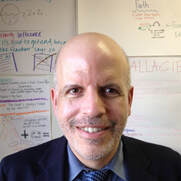 Larry Ferlazzo is an award winning teacher of English, Social Studies and International Baccalaureate classes to English Language Learners and mainstream students at Luther Burbank High School in Sacramento, California; author of nine books (The ELL Teacher’s Toolbox is the most recent); educational blogger for Education Week Teacher, the New York Times, and The British Council; and a host of weekly BAM! Education Radio show. (Link to Larry’s EduBlog.) 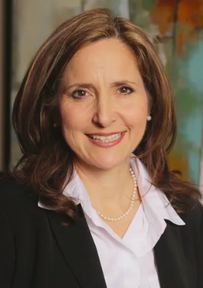 Carol Salva is an educational consultant with Seidlitz Education. She is a former elementary, middle school and high school educator. Carol specializes on research based and practical sheltered strategies for SIFE and newcomer students. Carol Salva holds a Masters degree in Education Administration that she uses to help improve processes and systems that support special populations. Along with her ESL certification, she is a Certified Gomez & Gomez Dual Language Trainer and a Certified Abydos Writing Trainer. She also coauthored the popular book Boosting Achievement: Reaching Students with Interrupted or Minimal Education. (Link to Carol’s EduBlog. 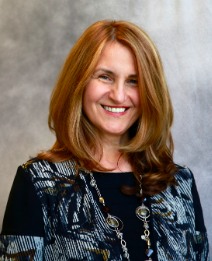 Dr. Andrea Honigsfeld is a leader in the field of English as a Second Language. She has authored over 20 books and offers professional development primarily focusing on effective differentiated strategies and collaborative practices. Her most recent book is Growing Language and Literacy. Dr. Honigsfeld is also Associate Dean and Director of the Educational Leadership for Diverse Learning Communities Doctoral program at Molloy College. 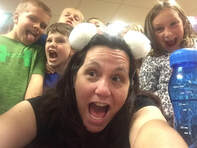 Rita Platt is is a National Board Certified Teacher and a self-proclaimed #edudork with master’s degrees in reading, library, and leadership. She currently is a school principal, teaches graduate courses for the Professional Development Institute and writes for We Teach We Learn. Rita's first book, Working Hard, Working Happy: Cultivating a Culture of Effort and Joy in the Classroom (Routledge/MiddleWeb), was published in July 2019. Please share with us your reflections and thoughts too. What would you have done differently if you could go back in time with the knowledge you have now?
2 Comments
Rachel Counce
8/24/2019 06:36:49 pm
I started teaching English Learners in 1995. I have taught many wonderful students over the years and remain close friends with lots of them. ELs are often transient, and some were not in my district long. I can still see each face and remember their story, but I would give anything if I had started a scrapbook with a page for every student I have served over the years.
Reply
Valentina
9/7/2019 11:17:32 am
Oh yes, Rachel. I agree. I wish I had kept a journal too. My mom always encouraged me to do that. But I never found the time. I wish I had taken her advice.
Reply
Your comment will be posted after it is approved.
Leave a Reply. |
Categories
All
|
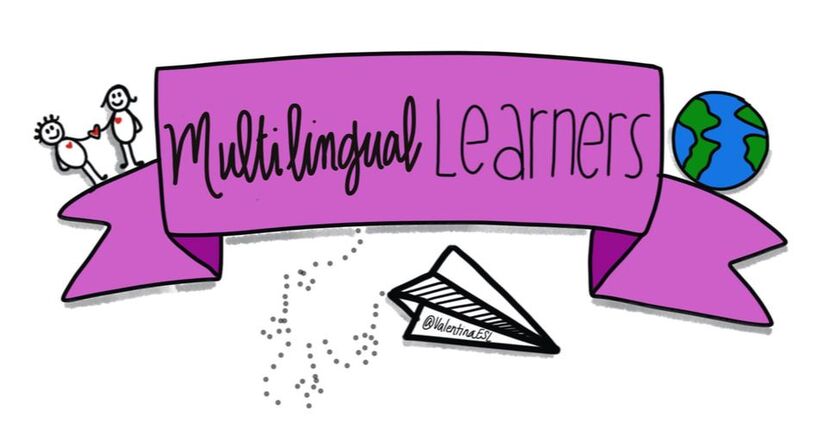

 RSS Feed
RSS Feed
